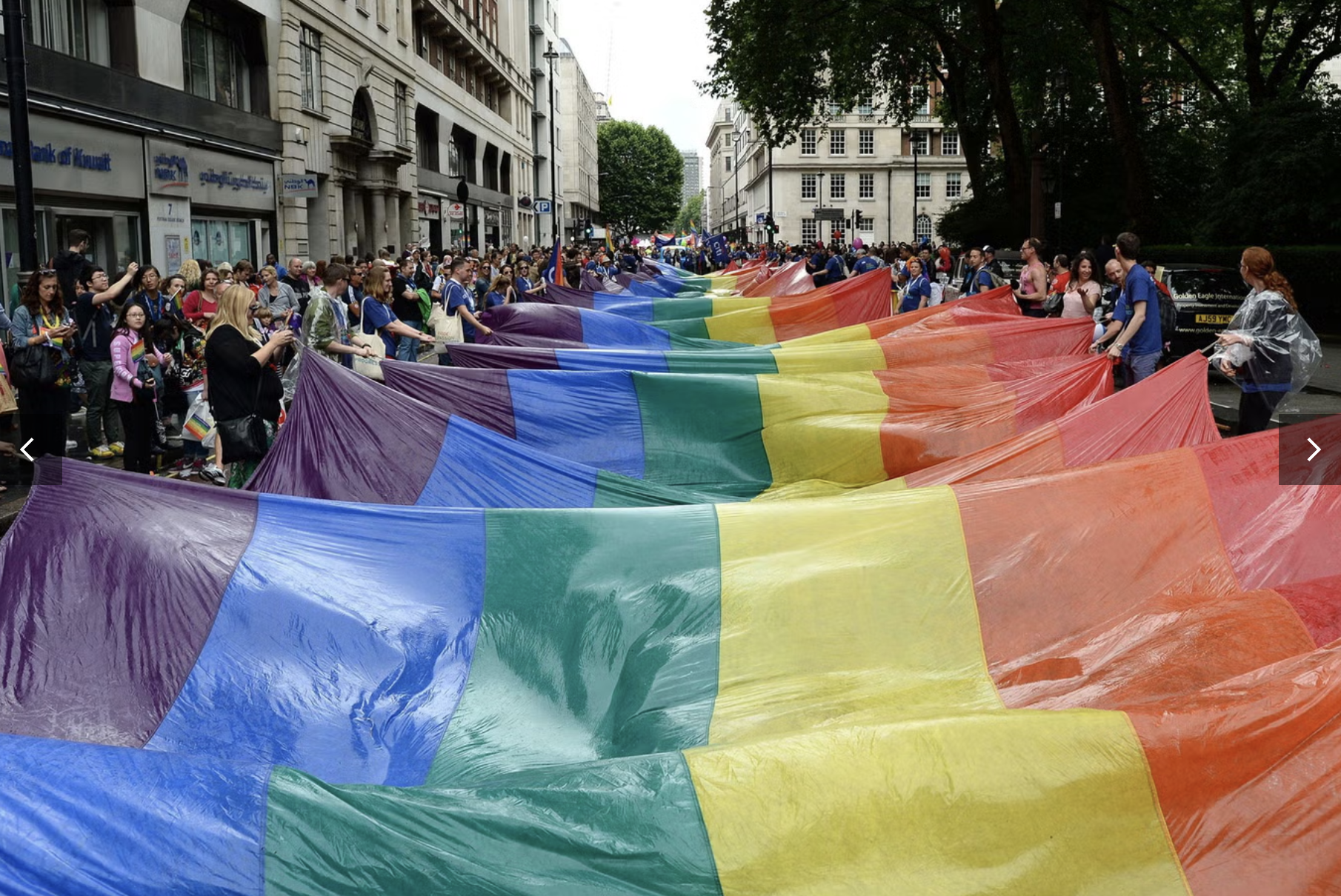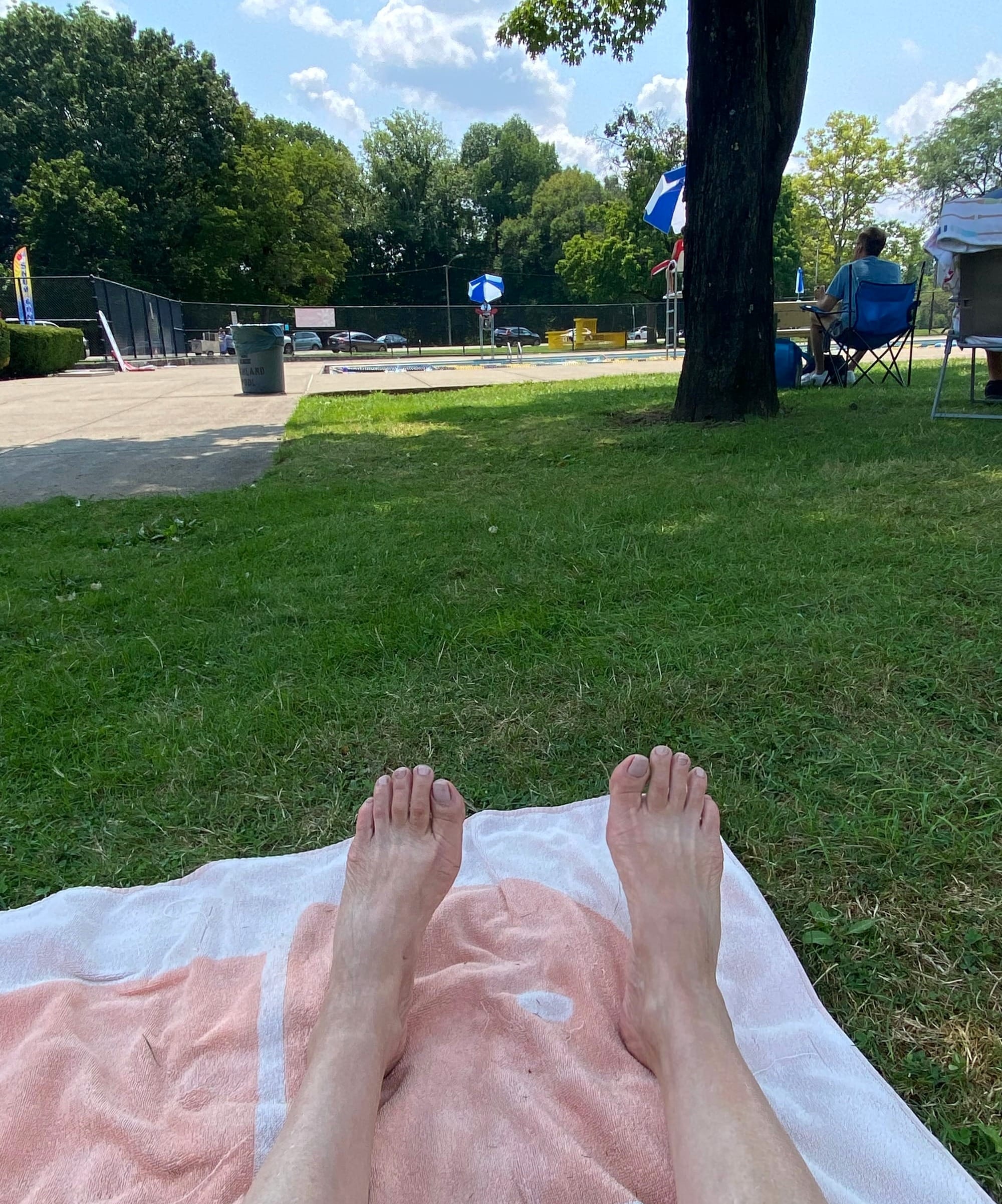The Trouble with “Clocking”
Noticing trans people as I go about my day makes me feel hopeful and happy. But celebrating trans people for simply existing is a little weird

I am trying to understand clocking, because sometimes it’s bad and sometimes it’s not. If you’re trans, getting “clocked” by a cis person means being visually outed when you didn’t want to be. Clocking feels hostile, intrusive, even violent. It’s not hard to see why.
On the flip side, within the trans community, using the word “clocked” is fine. For example, if a trans person says, on social media, “I never clocked you as trans!” it means something like: “you’re an interesting person to me beyond whatever gender we happen to share” or “I followed you for your movie content, and you’re trans too? Cool.”
As a cis mom of a trans person, I do notice trans people when I’m out and about. It makes me feel good—hopeful, happy—to see someone walking around freely as their true self. That’s what I want for my daughter Izzy, 18, and for all trans people. At the same time, celebrating trans people (in my mind) for simply existing seems a little weird.
Glitter
With Pride coming up, I’ve been thinking about the first time we went to a Pride parade after Izzy came out to me. She had just finished 10th grade. We were on a mother daughter trip and caught the celebration in the small town we were visiting. There were big crowds, bands playing, people dancing despite the heavy rain. Izzy and I walked around snapping photos of everyone in their jubilant Pride clothes, from ’80s Jazzercise gear to vintage cocktail dresses to full motorcycle leathers smeared with glitter.

There was one young trans woman I’d seen earlier at the ATM wearing a fabulous wrap skirt. Later, I watched her strut out to meet her parade crew in a pair of tiny paisley boy shorts. I happened to snap a photo of the moment she untied her skirt and flung it off. It sailed behind her like a giant fan.
Seeing what the trans femmes wore was a way to imagine what my new daughter might be like. Later, looking at my photos from the day, I wanted to show Izzy the woman in the boy shorts and the clever wrap-skirt reveal. I double tapped the image, and—horribly—my phone zoomed in on the woman’s upper thigh, where the paisley fabric stretched across her cheek. Izzy cringed and looked away. I felt sick.
With that unintentional closeup, I went from style aficionado to clocker. I had snapped the picture because I admired the girl’s outfit, not because she was trans, but it didn’t matter. Instead of saying to my daughter, “Here’s a cute look,” the gesture said, “Here is a body like yours that I trespassed upon; I will now shove its most vulnerable aspect in your face.” Izzy looked at me like I had put a lens up to her own legs, scrutinizing, exposing.
Cues
It was Pride, where people go proudly to be seen. But there is a difference between seeing and clocking. And it would be a while before my daughter knew how she wanted to be seen.
Recently I asked Izzy what “clocked” means to her. She said: “Isn’t everyone looking at each other all the time and evaluating each other? Aren’t we all getting messages and cues about who we are and how we identify from a million things about us?”
Izzy’s answers to my questions about gender zoom outward. She makes me see more of the world than I did before.
It’s three years later, almost June, swim season. You can always find me at my neighborhood public pool around sunset, after I have gardened for two hours in ferocious heat. When I walk up there by myself and jump in the deep end, it’s the best moment of the day.
Then I lie on the grass next to where a group of queer people always hang out. I’m not in the group, just near them. My swim routine is for solitude, but these are my people. I like to be near my people. I was a theater kid, a reader, an artist’s kid who grew up among artists. I prefer this spot to the one over by the soccer moms, families with kids, the “normies” at the pool.

If you’re reading this, maybe you, like me, are a cis person with a trans child. Does it not feel hopeful at this moment in history to see social groups out there that your child might belong to someday? Just doing their thing, swimming on a summer night?
My kid is not a theater kid, she does not like tattoos, she does not draw or paint. As a trans person, she prefers to be stealth. You would not notice or remember Izzy if she walked by. When she is here, she prefers to blend in with a group of girls who wouldn’t auspiciously attract the label ‘queer.’
Quietly
At first, this way of hers puzzled me. What did it mean that she didn’t look or act like the trans people I know or the trans people I see around town?
Again, my daughter showed me the limits of my questions and my understanding—this time by just quietly being herself.
Clocking trans people at the pool, no matter how appreciatively, is a narrow way of seeing. Instead of imagining what Izzy is ‘supposed’ to look like based on trans influencers or my students or the images I have stored in my head, I might imagine that everyone at the pool is trans.
The soccer moms are trans. All the kids in the wave pool are trans. The lifeguards, the lady who checks your pool tag, the person refilling the Pepsi machine, the pilot flying the plane making that contrail in the sky, all trans. Why not imagine everyone is trans? Anyone could be.
Maybe we all are.
—N.R.

